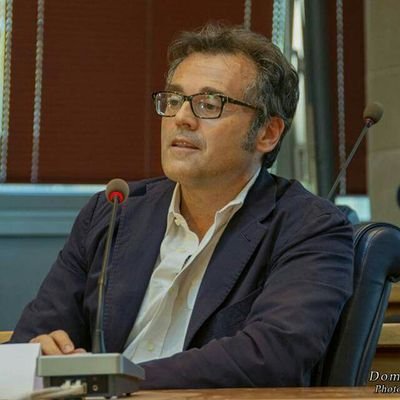
The death of David Sassoli, President of the European Parliament, restores to us all a character of great cultural and moral depth. Above all, leaders, by their example, should have safeguarded solidarity and democracy through political action that should have been conducted with courage and loyalty. Without the fear of confronting diversities.
Il parlamento europeo a Strasburgo ha celebrato la figura del suo presidente, David Sassoli, venuto meno pochi giorni or sono. Una persona gentile e sorridente, David Sassoli, formatosi con gli ideali della solidarietà, della giustizia, dell’impegno sociale.
I leader europei, nel ricordarlo, hanno portato con sé una rosa, emblematico ricordo dei Ragazzi della Rosa Bianca: nel giugno del 1942 un gruppo di studenti, vincendo la paura, mosse il dissenso distribuendo i volantini a Monaco e dintorni, invitando i propri concittadini a lottare contro il nazismo. Quei giovani alludevano a un’azione non violenta restituendo il valore alle parole, opponendosi ai nazisti che avevano fatto scempio dei concetti di libertà, onore, patria. Quei giovani avrebbero voluto raccontare la verità su quella azione politica che stava guadagnando i suoi consensi sull’onda del crimine. Quei giovani vinsero la propria paura per resistere al regime violento e menzognero, anche se furono presto fermati.
A tale vicenda fece riferimento David Sassoli nel suo discorso di insediamento come presidente: «Io sono figlio di un uomo che a venti anni ha combattuto contro altri europei […] Io so che questa è la storia anche di tante vostre famiglie […] non diremmo mai che siamo figli o nipoti di un incidente della Storia. Ma diremmo che la nostra storia è scritta sul dolore, sul sangue dei giovani britannici sterminati sulle spiagge della Normandia, sul desiderio di libertà di Sophie e Hans Scholl, sull’ansia di giustizia degli eroi del Ghetto di Varsavia, sulle primavere represse con i carri armati nei nostri paesi dell’Est, sul desiderio di fraternità che ritroviamo ogni qual volta la coscienza morale impone di non rinunciare alla propria umanità e l’obbedienza non può considerarsi virtù».
Sassoli guardava al passato per trarre insegnamento e coraggio per denunciare i nazionalismi estremi, il sopruso politico, l’ideologia di parte, tutte pericolose derive sempre in agguato nei consessi democratici. Dallo scranno più alto del parlamento europeo ha più volte intimato moderazione a personaggi come Orbán, Kaczyński, Lukašėnka, Erdoğan che, pur dichiarando di essere vicini idealmente all’Unione Europea, stanno evidenziando segnali di pericoloso autoritarismo.
Nella Repubblica leggiamo che a causare la degenerazione di uno stato democratico può essere l’«insaziabilità» (απληστία) di libertà.[1] Paradossalmente, dalla libertà potrebbe nascere la tirannia, «una assoluta e crudele servitù» (δουλεία πλείστη τε και αγριότατη).[2] La prima qualità di un leader è la sua abilità di organizzatore (εκ προστατικής φίζης)[3] che indurrebbe il popolo a rifugiarsi sotto la sua ala protettrice per sfuggire al caos che l’estrema libertà produce. La parola προστάτης usata per indicare questi personaggi carismatici, guide, leader, ha anche il significato di supplicante, difensore, patrono.
L’uomo che viene riconosciuto per le sue doti di leader non è certo un tiranno, ma può diventarlo e Platone descrive l’involuzione da προστάτης a τύραννος, descrivendo i sintomi di questa trasformazione: accusare ingiustamente i cittadini che non la pensano come lui fino ad assassinarli, favorire i suoi adepti proclamando la cancellazione di debiti e divisioni di terre, oppure eccitare alla sedizione contro i più ricchi.
Platone ricorda le cerimonie che si svolgevano presso il tempio di Zeus Lykaios, dove alcuni sacerdoti azzardavano a mangiare la carne delle vittime umane sacrificate e per questo si trasformavano in lupi. Veniva rinnovato alla memoria il gesto del re dell’Arcadia Lykaon che offrì suo figlio in pasto all’ignaro Zeus, per testare l’onniscienza del dio. Il re dell’Arcadia fu scoperto e trasformato in lupo per punizione; in seguito, resosi conto della sua arroganza, innalzò un tempio a Zeus, dedicandogli il nuovo culto.
Lykaon è l’uomo senza un posto nella storia, rappresenta l’età in cui l’umanità non possedeva obbiettivi di vita, né capacità di migliorare la propria esistenza, vivendo uno stato primordiale totalmente libero, dove non esisteva il sentimento della paura poiché non esisteva la percezione del passato e del futuro, sfidando gli dei con un vago sentimento di onnipotenza. Lykaon rappresenta l’inganno finale del tiranno che, offrendosi quale paradigma capace di ogni libertà, invita alla dissacrazione delle regole, offrendo ai suoi seguaci la loro stessa carne. Fuori dalla metafora, abusando della libertà, la stessa libertà viene soffocata.
Il tempo di Lykaon è paragonabile al tempo caotico popolato dai gigantes, antagonisti degli dei, dal grande corpo, istinto senza ragione. Tali esseri furono puniti col diluvio universale, catarsi che restituì loro la consapevolezza della propria dimensione limitata.[4] Già una volta, il diluvio ha rappresentato la cura per una umanità che ha attinto a una libertà senza confini, incestuosa e blasfema, dove ognuno riteneva sé stesso l’ombelico del mondo. Trasgredendo il proprio ruolo l’umano si perde, trasformandosi in una bestia sanguinaria; abusando della libertà smarrisce il senso della storia; offrendo consapevolmente falsi modelli e obbiettivi sbagliati rinnega il bisogno di collettività.
Tradire la libertà per riuscire a scoprirne il significato… di quali sciocchezze è capace l’uomo!
David Sassoli, il giorno prima di lasciarci, aveva spedito un tweet per ricordare una sua collega scomparsa, onorandone la sua forza d’animo e il suo desiderio di giustizia. Il male di cui soffriva non aveva tolto a David il desiderio di indicarci come usare la nostra libertà, additandoci un modello positivo, indicandoci il buon esempio; restituendo a ognuno la responsabilità di diventare un coraggioso costruttore oppure un insaziabile divoratore della libertà.
[1] Platone, Repubblica, 562 b.
[2] Ibidem, 564 a.
[3] Ibidem, 565 d.
[4] Giulia Piccaluga, Lykaon, un tema mitico, Quaderni SMSR, Edizioni dell’Ateneo, Roma, 1968.
Fotografia dal Corriere della Sera on line.


